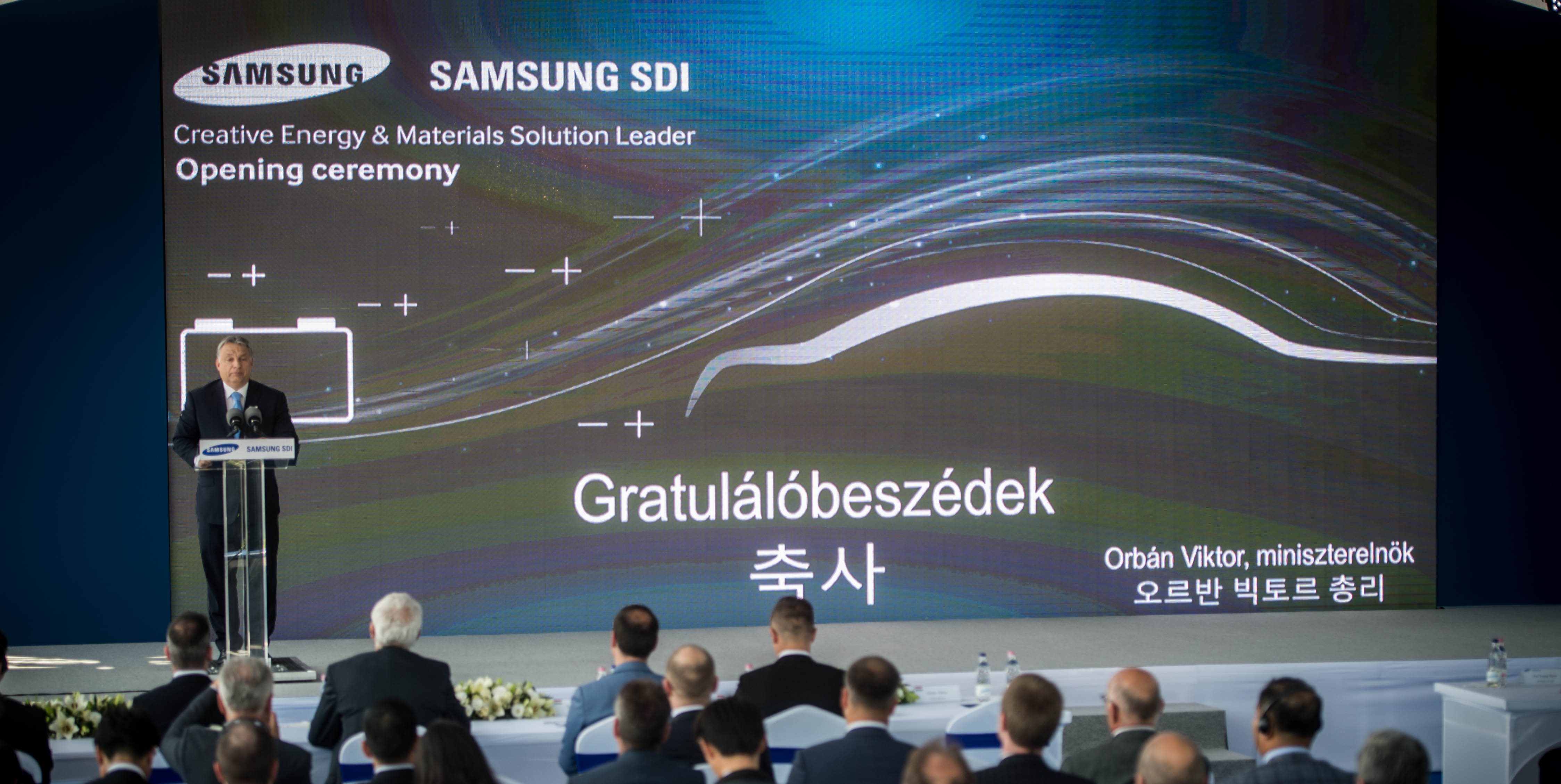
The Prime Minister said that in the first quarter of 2017 the number of people working in the Hungarian automotive industry was more than 160,000, and Hungary has thus become one of Central Europe’s centres for the automotive industry, on its way to becoming one of the region’s automotive development centres and a front-runner in electric vehicles. He stated that new projects implemented in this field – such as the plant in Göd – mean that not only are cars being manufactured in Hungary, but that the cars of the future are also being envisioned, made and tested here.
Mr. Orbán said that at the beginning of the nineties, after the dismantling of socialism, the world opened up, overnight people gained wide access to the products of the market economy, and they could become familiar with new brands. It soon emerged, however, that in itself the market economy is no guarantee of quality, he said, but if something was made in South Korea, “we could be sure that we had a product of excellent quality”. He added that South Korea and its businesses have been symbols of quality and innovation ever since.
In his words, South Korea is an example for Hungary, demonstrating that with hard work, precision and creativity it is possible to penetrate the world market; the Asian country is “a breathtaking success story”, he said. South Korea and Samsung, he pointed out, are proof that the world economy is not a system in which the cards are dealt only out once, but one in which they are continually being redealt.
The Prime Minister stressed that some regions of the world are emerging, while others are losing some of their strength, but South Korea is one of those which are now dictating the pace. Central Europe, he remarked, is also “among the rising, emerging regions”.
He said that it is also important that, while it has also learnt from others, South Korea has always pursued its own path. The country is one of Hungary’s important trade partners, he added.

Mr. Orbán said that over the past few decades South Korea has produced a miracle, and that “in Göd this miracle is here today once again”. With this project, the future of those living here is guaranteed, he stated, adding that many countries “would have been happy to host this project”, but Samsung insisted on Göd, and the town itself is committed to the company. In consequence, the Government also decided to support the project, with which “the future is moving into Göd”, he said.
The Prime Minister pointed out that by 2019 the number of electric charging points in the country will number 3,500–4,000, and by 2020 63,000 electric vehicles will be travelling on Hungarian roads, of which 54,000 will be passenger cars. The owners of electric cars are eligible for tax benefits, he said.
He stressed that both Hungary and Göd will benefit from the factory, as people will get jobs, businesses will get orders, Samsung will pay the lowest taxes in Europe, and it will have access to a highly-trained, creative labour market in a country striving to be at the forefront of research and development. This is a mutually advantageous arrangement, Mr. Orbán said.
Jun Young-Hyun, Chief Executive Officer of Samsung SDI, said that the market in electric cars is on the threshold of dramatic worldwide growth, and demand for the batteries manufactured here will increase significantly. The latest cutting-edge technology will be used here, which can contribute to major growth in the European electric automotive industry, he said. He also thanked the state and the town for their ongoing support, which has continued from announcement of the project last summer to the opening of the plant.

Bence Tuzson, Minister of State for Government Communication and the local Member of Parliament, said that the fact that this factory was built here means that the management of Samsung have faith in the Hungarian people, in the local people and in their work. He added that the Government has provided a great deal of support for Göd, which has been given HUF 2 billion for infrastructure developments.
Last August Minister of Foreign Affairs and Trade Péter Szijjártó announced that Samsung intended to start the production in Göd of batteries designed for electric cars targeting the European market, and that 600 new jobs would be created as part of the 100 billion forint project. The Minister noted that Hungary was selected for the project after keen competition at regional level, that significant infrastructure developments have been taken on, and that the Göd plant will contribute to reducing Samsung’s tax burdens.
Samsung SDI Magyarország Zrt., which in 2012 had revenue of HUF 76 billion, closed its earlier 322,000 square metre plant Göd in 2014. This was after a significant decline in demand for plasma screens, due to the technology’s high electricity consumption. Samsung’s current project in Göd has been spurred by the fact that all European car manufacturers are dynamically developing their production

